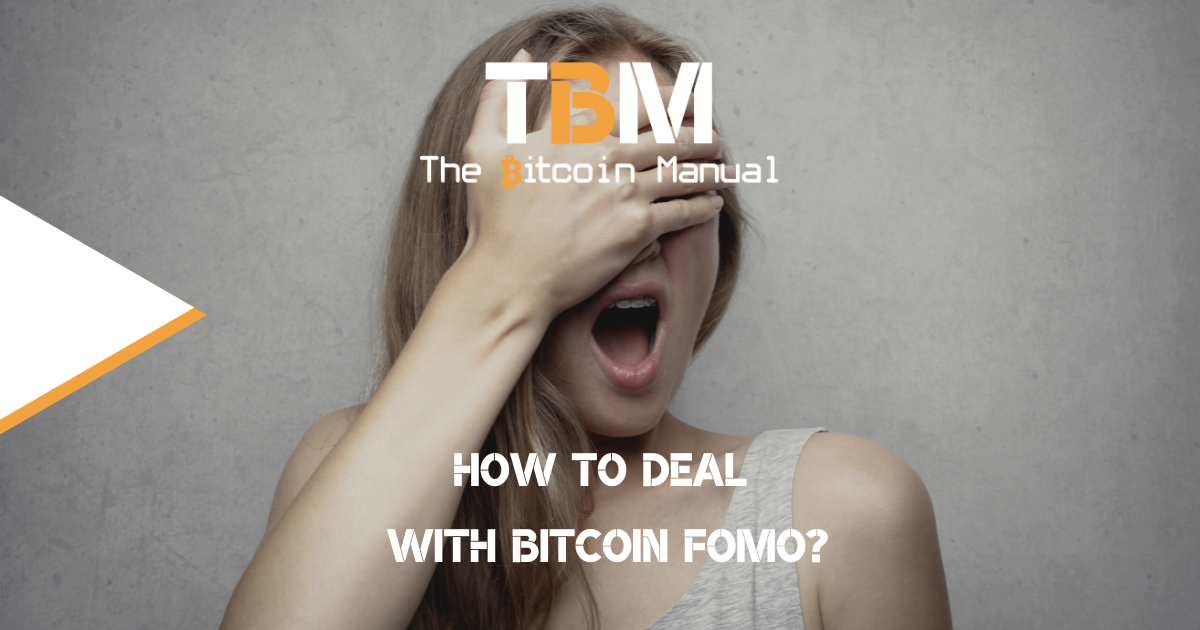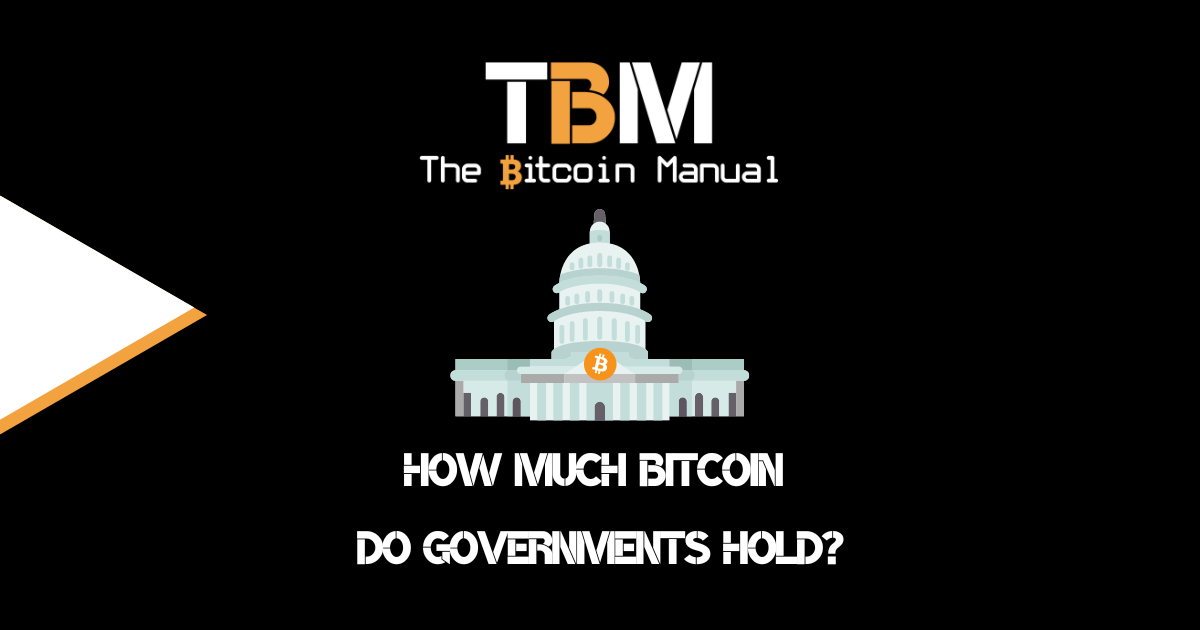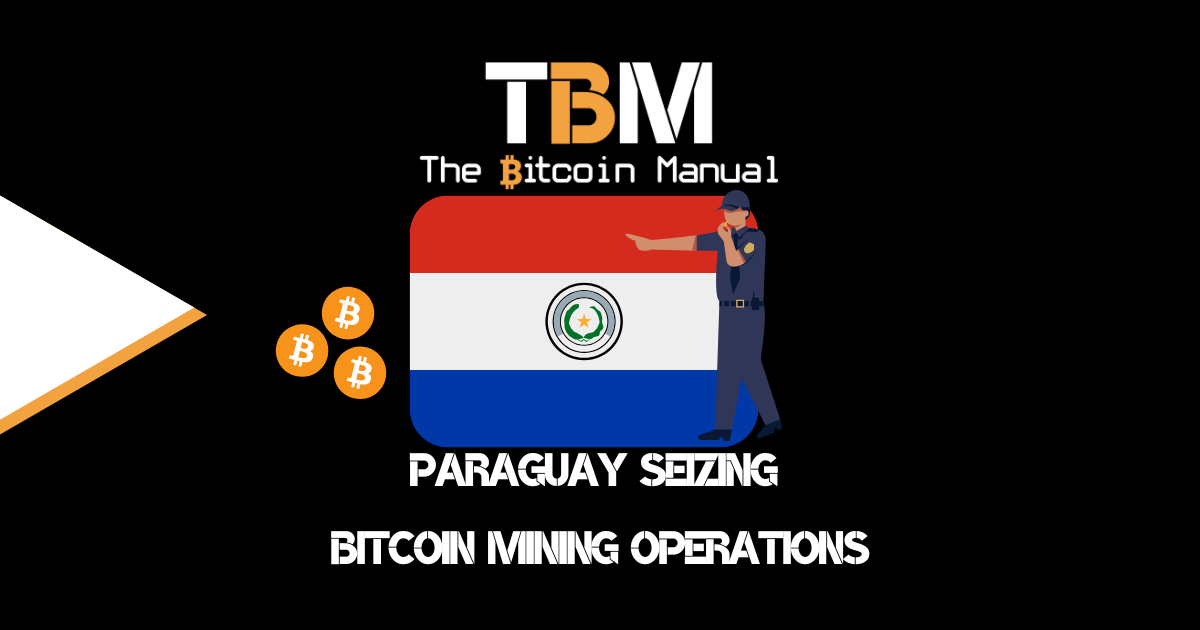The bitcoin price is its most powerful marketing tool; it’s the metric that gets the most attention and the one that gets brought up the most around any dinner table. If you’ve been a bitcoiner long enough, you’ve probably heard one of the following statements.
- What’s going on with bitcoin? I see it’s going up/down.
- Is bitcoin dead, or is this a good time to get in?
- The price keeps running; do you think it will continue?
All these statements are often spouted by nocoiners, precoiners, or shitcoiners, who have an extremely high time preference and are trying to fish out some confirmation bias because they have not done the research into bitcoin and don’t have real conviction in the asset they’re holding or the asset they’re thinking about acquiring.
They’re looking to you to make the decision for them, and in most cases, you shouldn’t. If someone is unsure about any investment, they should not own it or rather only own an amount that shows their level of conviction.
But having no bitcoin allocation or a conservative bitcoin allocation isn’t going to see you maximise your gains in the short term, which is the goal of many entering the market. They’re looking to get rich quickly, and even though this is highly unlikely, there is an entire industry dedicated to telling you it can be done.
Exchanges, influencers, novice traders, trading groups, trading course creators, signal sellers and the so-called “crypto” media (funded by exchanges and exchange equity holders) have built a highly profitable sales funnel, leveraging the brand equity of bitcoin and then selling you risk most people have no idea how to price let alone understand.
Signal over noise
The bitcoin price is something we do not focus on in our content simply because we think it gets enough attention. It’s hardly an interesting topic to discuss and only introduces more noise to the conversation. When you focus on price, it’s often over a short time frame, and the message is pushed through a sense of urgency.
When you’re under pressure and time constraints, you’re not in the mindset to source information or upskill yourself, and this is not the audience that would find our content valuable. What is the point of learning to self custody if your end goal is to sell on the next pump?
Trading bitcoin paper promises on a centralised exchange shows a lack of conviction, understanding and appreciation for the network and its lofty goals. But learning about bitcoin is not for everyone; there is a stubborn minority willing to venture deeper than the price.
Not only that but there is an incentive to drum up noise. Instead of looking into what’s going on in the greater bitcoin ecosystem, it’s very easy to create “throw away” content pontificating about the price, pulling in various bullish and bearish stories circulating in the media and calling it a day.
In fact, this is the business model for many YouTubers or newsletter writers, who make a decent living from pushing the FOMO narrative.
What Is FOMO in bitcoin?
FOMO in the bitcoin world occurs when a person makes an irrational decision to trade or invest in a bitcoin based on some piece of information received without properly verifying the source and or accuracy of it.
I often refer to these groups as the Q-anons of cryptocurrency.
Alternatively, the news might be accurate, but the impact of the news is vastly overestimated, and these novice traders will take positions thinking that they have some sort of edge that has yet to be priced in.
FOMO in bitcoin leads people to buy assets at their highest prices or even sell them at their lowest, rather than vice versa, which would be their intended goal.
Sometimes, the consequences of bitcoin FOMO can be worse and more profound than unrealised losses of invested capital. It can lead to you taking additional risks, like handing over your funds to functionally insolvent exchanges for additional interest or trying to trade with groups who have no more of an edge than you do but pretend otherwise.
FOMO is emotionally driven, and this greed can take hold, pushing investors to act completely irrationally, which can not only lead to blowing up your nest egg but disconnection from family, anxiety, and depression.
Dangers associated with FOMO
When a person falls for FOMO once, burns their hand on the stove and learns never to do it again, it can be a valuable lesson. It can also make for a fun story to tell over a pint at the pub, where we can all share war-trading stories and have a laugh about our moment of delusion.
Where FOMO becomes a problem is when you become a repeat offender, and losses start to amount to figures you cannot recover from and suck cost fallacies encourage you to keep going so you can “make it all back”.
A person who has lost a large amount of money might see their standard of living affected, might have to tighten their belt and save up once again, or it can go as far as losing other assets, and you could end up severally affecting mental health. In turn, this failure can be reflected in other aspects of their life, such as relationships, connections with family and friends, and more.
The person could start to withdraw from shame and embarrassment, seek echo chambers online, and experience social decline and gradually become dysfunctional if extra care isn’t taken.
FOMO can become a serious issue, and those that suffer from serious FOMO delusions should seek professional help, as any gambling addict would do. Because that’s the truth, as much as you want to justify what you’re doing as investing, you’re not.
You’re gambling!
Identifying the cause of FOMO
FOMO is being driven in the bitcoin community for several reasons. Identifying them could help you understand why you have these irrational feelings and help you or a loved one deal with them.
1. The bull trap
There is no bigger delusion than the “trust me, bro, I have it under good authority we’re going to pump argument”. The idea of catching the next big move generally has dominated the bitcoin narrative due to the track record of massive price appreciation during bull markets.
Bitcoin, for example, has experienced cumulative growth of nearly 30,000% in the past nine years, which has resulted in several highly publicised success stories that novice traders home to emulate. What many traders don’t realise is that these wealthy bitcoin holders often held their coins over serval cycles and weren’t trading in and out of positions on price runs.
Despite that, there are plenty of paid-for PR publications of social media “day traders” selling the myth that the next rally will be on the way, and they know how you need to prepare. The excitement behind the next possible price surge is a classic FOMO.
2. Realised or unrealised losses
Bitcoin FOMO is often profit-oriented, but the reverse can also be true. People experience FOMO when they might not have “cashed out at the right time”, and those paper gains begin to play on their psyche. By not selling at that optimum blow-off top market price, they now feel they’re down a certain amount of money that was rightfully there to take, and they missed out.
Even if that blow-off top price had $1 worth of bids, that market price multiplied by the amount of bitcoin the trader has could send people into a tailspin. Instead of trying to “hodl” to the moon, it’s all about recovery, and these unrealised losses can drive traders to take even more risk and end up with big realised losses.
3. Information overload
Information is a crucial driver in building conviction and taking a bitcoin position, and this takes time. You’re NOT going to understand bitcoin in a month or even a year, nor will it be a deep enough understanding for you to warrant throwing in a sizable amount of your savings. You need to accept that there is far more that you don’t know about bitcoin than you do know and that this will be a learning journey.
The more you learn, the more you become comfortable with the tech, and the better you might feel about holding it or accumulating more bitcoin. Information can bring clarity, but this is not a given, and in today’s world of click-baiting and clout-chasing, information can also be a FOMO tool.
In a market where information or rather misinformation creation can be a profitable endeavour, you need to limit your exposure to certain sources and vet every source of information. In the beginning, it can be overwhelming. Still, with time, you’ll start to find out sources you feel are more or less giving you an accurate representation of reality and which ones are trying to sell you down the river for advertising dollars.
4. I missed the bus
This mentality stems from people who believe the early-mover advantage always leads to a positive outcome due to success stories they’ve seen in the media. Many people don’t know about all the early bitcoiners who lost their funds, sold them for a few hundred dollars or got scammed out of their bitcoin.
Not everyone wants to tell the world that they’ve lost possibly millions, and why should they? That’s none of our business and because of this people think the cherry-picked stories are bitcoin’s reality.
Just because a few people made millions or billions in bitcoin doesn’t mean there isn’t reasonable price appreciation in bitcoins’ future. Bitcoin is still very much in its infancy, and as the network has a long way to go to compete with established asset classes, so be patient.
But don’t expect to be a billionaire overnight, but be more reasonable with your expectations. If you’ve acquired a position in bitcoin, and it’s outperforming your fiat, stocks and bonds over a certain time period, how have you missed the bus?
5. Free markets seem to be foreign
Unlike the foreign exchange and stock markets, the bitcoin market is relatively untested, largely unregulated, and has a low barrier to entry. In addition, there is no buyer of last resort with bitcoin, and if market participants don’t step in during sell-offs, prices can continue to drop until buyers are attracted to the market.
These factors have led to an influx of people with limited knowledge and understanding of how the market works, eagerly taking on positions with no real strategy but the idea that they will profit and it’s all driven by FOMO.
How to avoid FOMO in bitcoin
If you are new to the bitcoin market and you’re starting to feel anxious if following the price and market news is taking up way too much of your day and mental capacity, it may be time to take some action to ease those feelings of FOMO.
1. DYOR and don’t trust, verify
FOMO is compulsive and driven by the quality of information we receive and our ability to process that information correctly. When reading any information on bitcoin, you need to account for the source and the personal bias of the author.
When researching an aspect of bitcoin, consider what the counter-narrative is, don’t only read content from bitcoiners, but follow detractors and listen to their arguments. This will give you a better understanding and grounding of where the middle ground is and how you price in this information.
When you see stats online, head to the source of the statistics, confirm the numbers, spin up your own node, or check multiple sources and don’t simply believe a graph or bar chart online. If you are going to consume media, make sure you discount it heavily. Relying on selected media outlets and influencers who have no real expertise and only regurgitating talking points with vigour is a surefire way to see you fall down the FOMO rabbit hole.
2. Accept you will have to eat losses.
The bitcoin market will have its ups and downs, and depending on your entry point, you might be exposed to more downside than upside. Understanding that one can’t always be in a profitable position in investing will help you decide how you plan to allocate towards bitcoin and if you want to deal with the level of volatility.
3. Developing a guiding strategy
Having a guiding principle is a constructive way to get over the effects of FOMO. It means maintaining a checklist to prevent making drastic decisions or jumping too quickly based on the latest round of paid-for press releases masquerading as news articles. Your strategy has to be something that won’t invoke too much panic, or you could quickly see yourself disregarding your ruleset the moment the market doesn’t move in a certain direction.
This could be something as simple as:
- Buying a certain dollar amount of bitcoin every day.
- Acquiring or working towards acquiring 1% of your portfolio in bitcoin.
- Buying bitcoin only on price dips and fire sales.
4. No one can predict the market.
The cryptocurrency market, like others in the financial world, moves in an up-and-down cycle, with bullish and bearish periods. Understanding this cycle is one part of it; the other is understanding that its past performance doesn’t dictate future market movements. Once you understand that you’re playing a game stacked against you, it will help reduce the risk of being driven by FOMO.
You need to learn to accept the reality of the market and your ability to source information and trade with people with more capital and do this for a living. If you have no edge, you will be edged out of the market. Professional traders and exchanges love over-confident retail investors; they are free-money cash cows waiting to get slaughtered.
Despite most day traders losing money, there is a steady conveyer belt of new ones thinking they can beat the odds, and they’re egged on by many a bad actor. If there was someone who could predict market movements at even 65% of the time, that person would be insanely wealthy and wouldn’t be wasting their time suckering you into a group, course or whatever they’re trying to sell you. Only a smooth-brain simpleton would believe a pitch like that, so stop it and get some help.
5. FOMO is scammer fuel
Since bitcoin started gaining global recognition, many scammers have taken it upon themselves to welcome new investors to the ecosystem by taking their money. Bitcoin scams are not going away anytime soon, and don’t think you’re too smart to get scammed.
Scammers cleverly craft tactics and leverage FOMO to get you to part with your bitcoin; it could be through something as simple as:
- Send me one bitcoin, and I’ll double it.
- Send me bitcoin, and ill pay you interest.
- Send me bitcoin, and you can get this other token that will be worth way more.
- Don’t buy bitcoin; buy this instead.
- Buy this; it’s a derivative of bitcoin.
I could go on, but I think you get my point; when you feel you’ve missed out, you’re willing to take on more risk, and what is riskier than handing your money over to a scammer?
Don’t get swept up by FOMO.
Forms of FOMO have been a part of human existence long before bitcoin was invented and will continue into the future. There will be plenty of cases of people who FOMO into bitcoin, get cleaned out by making emotive trading decisions and blame bitcoin for their poor decisions and bad luck.




